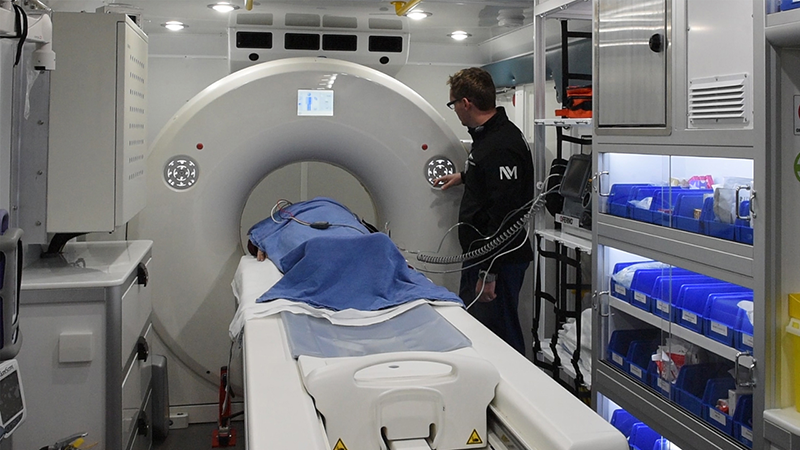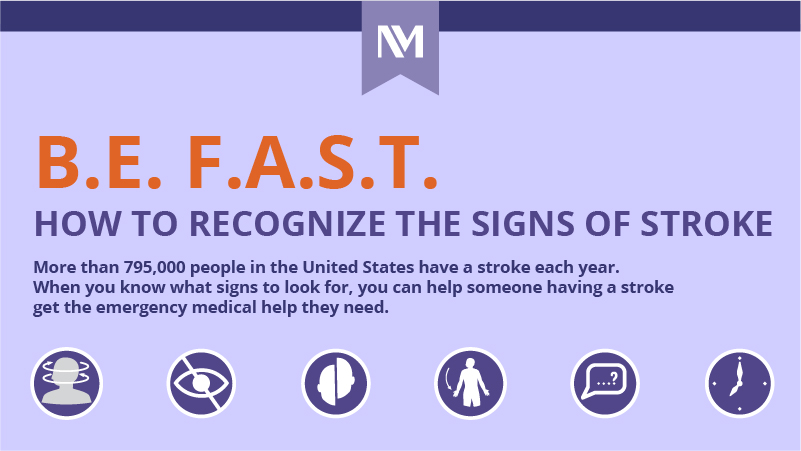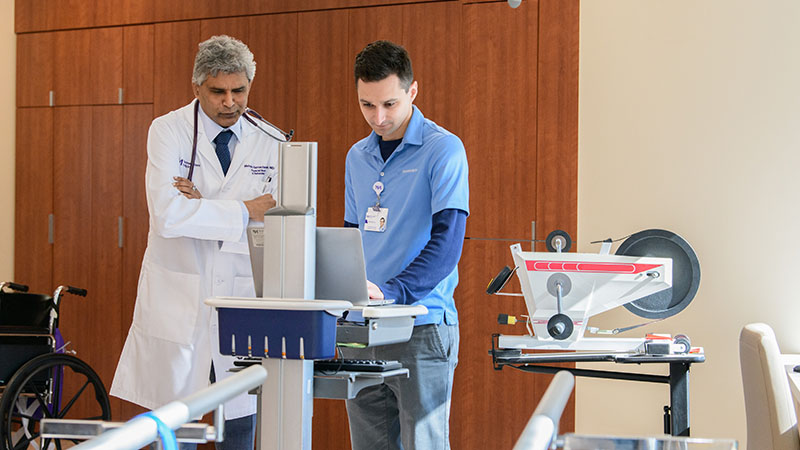Overview
Before Stroke
Approximately every 40 seconds, someone in the United States has a stroke, a condition where blood stops flowing to part of your brain. A stroke is always a medical emergency, and it's critical that you seek emergency care as soon as possible after symptoms begin to avoid long-term disability, or even death.
Think FAST
The National Stroke Association’s acronym FAST can help you quickly determine whether someone is having a stroke:
- F (Face): Ask the person to smile. Does one side of his or her face droop?
- A (Arms): Ask the person to raise both arms. Does one arm drift downward?
- S (Speech): Ask for a simple phrase (such as,“You can’t teach an old dog new tricks”) to be repeated. Is speech slurred or hard to understand?
- T (Time): If you observe any of these signs, call 911 immediately.
Time is critical
Never wait more than five minutes to dial 911 if you or a loved one experiences even one of the signs above. You could be having a stroke, even if you’re not experiencing all of the symptoms. And be sure to pay attention to the time. The responding emergency medical technician or emergency medical team at the hospital will need to know when the first symptom occurred.
If given within three or four hours of your first symptom, a special clot-busting medication called tPA (tissue plasminogen activator) may help reduce long-term disability for the most common kind of stroke. The longer the flow of blood is cut off to your brain however, the greater the damage.
Leading-edge care
If you or someone you love experiences symptoms of stroke, know that leading-edge care is close by at Northwestern Medicine. We are home to highly trained physicians1, nurses and rehabilitation therapists specializing in stroke, along with the latest technology, and advanced research and clinical trials.




